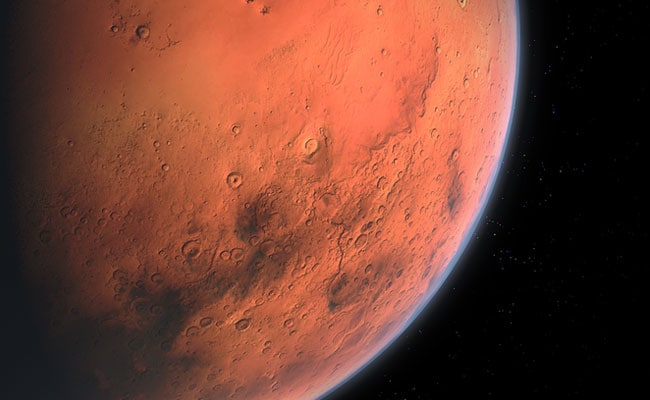
[ad_1]

The meteorites were from the Martian surface.
A robot chemist has synthesised compounds that could be used to generate oxygen from water. Powered by artificial intelligence (AI), the robot analysed meteorites from Mars, space.com said in a report. Scientists said the discovery will help future crewed missions to Mars, in which oxygen will be needed, not just for astronauts to breathe, but also for use as rocket propellant, the outlet further said in its report. Producing oxygen from substances found on the Red Planet will do away with the need to carry a bunch of oxygen-producing materials from Earth.
A study detailing the experiment has been published in the journal Nature Synthesis.
The idea came to scientists after recent discovery of significant reserves of frozen water ice on the Martian surface.
The compounds created by the robot chemist, known as catalysts, are capable of spurring chemical reactions that “split” water molecules to generate oxygen and hydrogen gas, said space.com.
The Martian meteorites on which experiment was carried out were rocks that crashed down on Earth after cosmic impacts blasted them off the Red Planet.
After scanning the rocks using a laser, the AI-powered robot calculated more than 3.7 million molecules it could make from six different metallic elements in the rocks – iron, nickel, manganese, magnesium, aluminium and calcium.
The robot chemist worked on the samples for six weeks without any human intervention and synthesised 243 different molecules. The best one it analysed could split water at minus 37 degrees Celsius, the kind of cold temperature found on none other than Mars.
“When I was a boy, I dreamed of interstellar exploration,” Jun Jiang, co-senior author of the study and a scientist at the University of Science and Technology of China in Hefei told Space.com.
“So when we finally saw that the catalysts made by the robot could actually produce oxygen by splitting water molecules, I felt like my dream was coming true. I even started to imagine that I, myself, will live on Mars in the future,” the scientists added.
Scientists said it would have taken a human scientist 2,000 years to find the best catalyst using conventional methods.
[ad_2]
Source link
